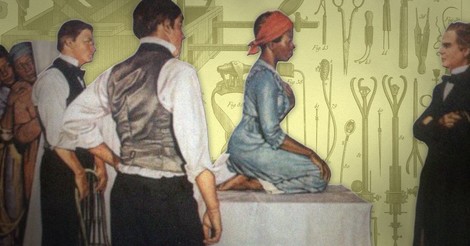Your podcast discovery platform
Curious minds select the most fascinating podcasts from around the world. Discover hand-piqd audio recommendations on your favorite topics.

piqer for: Climate and Environment Global finds
Andrea is a writer and researcher based out of Chicago. Andrea has a Bachelor's degree in environmental science from The Ohio State University and a Master's in Environmental Planning and Management at National Taiwan University, where she specialized in climate adaptation and urbanization. She writes for TaiwaneseAmerican.org, and sends out a biweekly newsletter which includes articles on politics, environment, identity, and intersections of race, class, and gender (http://eepurl.com/bPv-F5).
The US Medical System Is Still Haunted By Slavery
James Marion Sims is considered the father of gynecology, and invented the speculum and several kinds of procedures. His image is memorialized by a bronze statue in Central Park in NYC. But, his accomplishments were the result of horrific experiments on black slave women. The legacy of racism in America lives on today, where infant mortality and maternal mortality among black women are almost three times as high as among white women.
This is a video collaboration between Vox and ProPublica. They interview Harriet A. Washington, the author of Medical Apartheid: The Dark History of Medical Experimentation on Black Americans from Colonial Times to the Present, who discusses this historical context of the medical care gap in the US. Black Americans receive lower quality care, are characterized as not feeling as much pain, and these stereotypes and lack of empathy go back to the era of slavery, when doctors worked for the benefit of slave owners. Women were experimented on in torturous ways, and doctors like Sims were the norm rather than the exception. Medical journals were filled with accounts of experiments on slaves without anesthesia, with entirely inhumane commentary. Slave women were forced to have more children as a way of profit for their slave owners, yet after slavery they were systematically sterilized when their reproduction was seen as a problem. Forced sterilization through surgery or other coercive birth control methods were an issue up to very recently. Birth control targeted at black teens or women on welfare were very much on the table as late as the 1990s.
This video is well worth the 8 minutes to watch, as it links many different historical events to current issues. The US has not had a great track record of addressing its historical atrocities, but this educational video may provide some context never taught in American schools.
